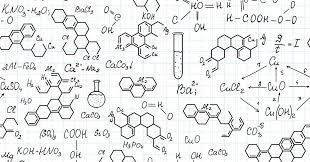
When I read the story of Dr. Maitland Jones, Jr. I did not know whether to laugh or cry. Jones has been a research chemist and professor of chemistry for over fifty years in such Universities as Princeton, with a resume of accomplishments that few chemistry professors can match. He was fired from New York University, where he taught organic chemistry, because 82 out of 350 undergraduate pre-med students signed a petition to the effect that his course was too hard and the low grades they received jeopardized their chances of admission to medical school. Jones responded that students’ learning had declined during the Covid pandemic.
I can easily imagine what Dr. Schultz would have said to students who felt organic chemistry was too hard. He would have told them that perhaps medical school wasn’t for them.
After forty two years in medical practice I know that today I could not pass any of the exams I took in those undergraduate courses. I have never used anything I learned in physics, calculus, organic chemistry, or physical chemistry to help me treat a patient. Does that mean they were of no value and I wasted my time in taking them? Not at all.
As a runner, I have found that cross training in other activities, helps to better prepare me for the demands and rigor of running long distances. My undergraduate courses prepared me for the demands and rigors of medical school. I learned to study, to budget my time, to take exams, and, yes, to memorize. Anyone who does not think memorization is important in medicine fails to realize that you cannot run to a book or computer for every answer to a clinical question.
To this day I have my notebooks from some of my undergraduate classes. Once in a blue moon I will pull one out and leaf through the voluminous hand-written notes of information and formulas that I once knew inside and out. Many pages are a rainbow of different highlighter colors- I used a different color each time I reviewed my notes for exams. I am proud that I learned the material and did well on my exams. They were my passport to entry in medical school.
For students to complain about organic chemistry being hard is unsurprising. It is hard, very hard. But to have a university fire a professor of the caliber of Dr. Jones because some students complained his course was hard makes me worry about the caliber of students seeking entry into medical school these days and about the priorities of the university that does this. I am glad Dr. Schultz isn’t here to witness this lowering of the bar of undergraduate education.
Richard T. Bosshardt, MD, FACS